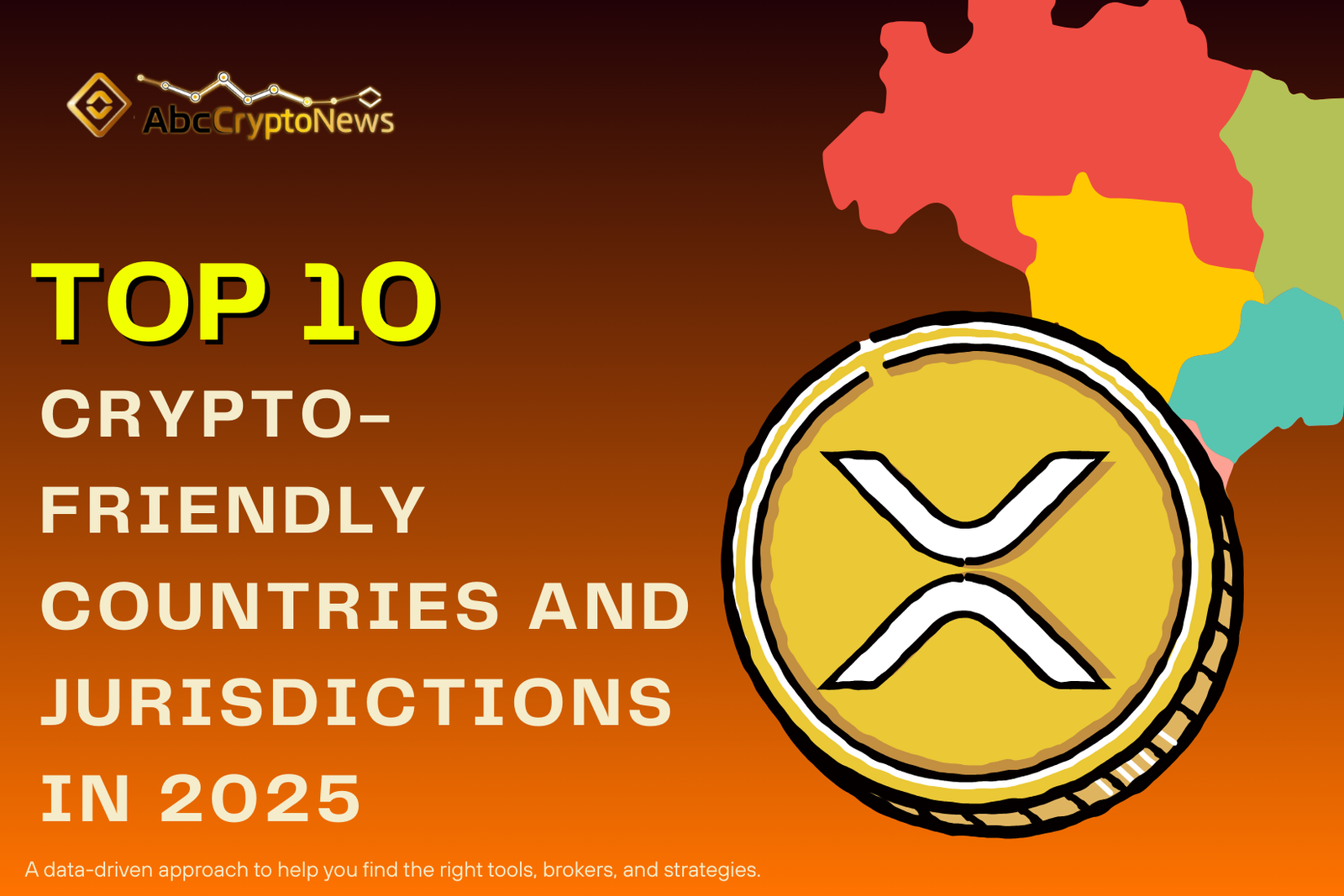Top 10 Crypto-Friendly Countries and Jurisdictions in 2025
Top 10 Crypto-Friendly Countries : The global conversation around cryptocurrency has shifted dramatically. In 2025, the term crypto-friendly countries isn’t just a catchphrase; it’s a marker of how governments, regulators, and communities embrace digital assets as part of mainstream finance. For investors, entrepreneurs, and digital nomads, the choice of jurisdiction can influence everything from tax obligations to ease of doing business.
Several factors shape whether a country earns the label “crypto-friendly.” These include regulatory clarity, supportive tax policies, open banking infrastructure, high adoption rates, and a stable governance environment. In this article, we explore the Top 10 Crypto-Friendly Countries and Jurisdictions in 2025, where blockchain innovation meets practical living advantages.
Top 10 Crypto-Friendly Countries : What Makes a Country Crypto-Friendly?
When assessing crypto-friendliness, six themes consistently emerge:
- Regulatory Clarity: Countries offering clear licensing frameworks for exchanges, wallets, and service providers reduce uncertainty for investors and businesses.
- Tax Policies: Jurisdictions with zero or low capital gains taxes on crypto attract traders and long-term holders alike.
- Banking Access: Partnerships with crypto-friendly banks, ETFs, and payment gateways make integration with fiat smoother.
- Adoption Levels: From daily retail payments to enterprise blockchain projects, adoption reflects real-world use.
- Global Connectivity: Location matters—being part of the EU, Asia-Pacific, or Middle East blocs can expand business opportunities.
- Political Stability: Innovation thrives when governance is consistent, transparent, and supportive of new industries.
Switzerland: The Crypto Valley Stronghold
Switzerland has long held a pioneering role, thanks to FINMA’s proactive stance and the country’s landmark Distributed Ledger Technology (DLT) Act. Zug—often dubbed “Crypto Valley”—remains a magnet for blockchain startups, hosting firms like Ethereum’s foundation and established banks such as Sygnum and SEBA.
For individuals, Switzerland’s zero capital gains tax on crypto holdings is a significant advantage. Coupled with progressive banking integration and experiments in central bank digital currencies (CBDCs), the country continues to set standards in both innovation and financial stability.
Singapore: Asia’s Blockchain Gateway

Source: Paul Hype Page
Singapore balances global finance with cutting-edge crypto regulation. The Monetary Authority of Singapore (MAS) has implemented a licensing regime for virtual asset service providers (VASPs) while introducing clear stablecoin guidelines.
Crypto traders benefit from no capital gains tax, and corporations find a competitive tax structure paired with R&D incentives. Beyond policy, the city-state has emerged as a global fintech hub, attracting blockchain professionals, investors, and developers across Asia.
Germany: Europe’s Regulated Powerhouse

Source: AML Intelligence
Germany distinguishes itself through BaFin’s comprehensive regulation and alignment with the EU’s Markets in Crypto-Assets (MiCA) framework. Investors enjoy exemptions: crypto held for more than a year is tax-free, and smaller transactions under €600 are untaxed.
The country also leads in tokenized securities and the adoption of real-world assets (RWAs) on blockchain. While exchange presence is still developing, Germany’s clarity and investor protection make it one of the most reliable jurisdictions for long-term crypto engagement.
Portugal: A Digital Nomad’s Crypto Haven

Source: Immigrant Invest
Portugal has emerged as a European magnet for digital nomads and expat entrepreneurs. Long-term crypto holdings—more than 365 days—are tax-free, while Lisbon has become a vibrant hub for blockchain meetups and conferences.
The government’s Digital Transitional Action Plan signals further integration of blockchain into public services and the economy. Although banking support remains limited, the country’s community-driven growth cements its position among Europe’s most crypto-friendly destinations.
El Salvador: Bitcoin’s Bold Experiment

Source: Bein
Since 2021, El Salvador has stood out by declaring Bitcoin legal tender. In 2025, the experiment continues with Bitcoin Bonds, geothermal-powered mining, and residency incentives for crypto investors.
For traders, the attraction lies in zero tax on Bitcoin income and the opportunity to participate in a national economy centered on digital assets. While international skepticism lingers, El Salvador has undeniably positioned itself as a global case study in crypto-led economic policy.
United States: Innovation Amid Complexity

Source: The Defiant
The United States presents a paradox: a regulatory patchwork split between agencies like the SEC and CFTC, yet it remains home to the world’s largest institutional adoption. With the approval of Bitcoin and Ethereum ETFs, Wall Street players like Fidelity and BlackRock have fully entered the sector.
Taxation is more complex, distinguishing between short-term and long-term holdings, but the U.S. offers unmatched scale, liquidity, and startup ecosystems. Its mining dominance and high retail ownership continue to drive global trends.
United Arab Emirates (UAE): Dubai as a Global Hub

Source: Tulpartax
The UAE has become the Middle East’s standout, thanks to regulatory bodies like VARA in Dubai and ADGM in Abu Dhabi. Traders benefit from tax-free crypto transactions and free-zone corporate exemptions.
Dubai hosts major exchanges such as Binance and Bybit, while banks like Emirates NBD support digital asset services. With its mix of innovation-friendly policies and global connectivity, the UAE is cementing itself as a preferred base for entrepreneurs.
Estonia: Europe’s Digital Pioneer

Source: Coingeek
Estonia’s reputation as a digital-first nation extends naturally to crypto. Its flat 20% tax rate and supportive banks (such as LHV) provide a practical environment for blockchain startups.
The government has tightened its VASP licensing regime, demanding higher capital requirements, but this has enhanced legitimacy. With a strong focus on blockchain education and workforce development, Estonia remains a forward-looking choice for startups.
Malta: The Blockchain Island
Malta branded itself the “Blockchain Island” years ago, and it continues to host global exchanges like Binance and OKX. Its flexible corporate tax framework and absence of capital gains tax on crypto make it attractive to businesses.
The ecosystem is smaller compared to Switzerland or Germany, but Malta’s government maintains active promotion of blockchain adoption. Its jurisdictional flexibility keeps it competitive within the EU.
Australia: Growing Adoption and Integration – Top 10 Crypto-Friendly Countries

Source: decrypt
Australia rounds out the list with its clear VASP guidelines and a straightforward capital gains tax framework. Notably, small transactions under AUD 10,000 are tax-exempt, making day-to-day crypto payments more practical.
Banks including NAB and ING support crypto-related services, while blockchain projects span industries from healthcare to logistics. With strong adoption in cities like Sydney and Melbourne, Australia is rising as a Southern Hemisphere hub.
Emerging Jurisdictions to Watch – Top 10 Crypto-Friendly Countries
- Hong Kong: After reopening its market with VASP licensing and crypto ETFs, Hong Kong is positioning itself as Asia’s institutional crypto hub.
- Kazakhstan: Leveraging renewable energy for mining and AFSA regulation, it continues to attract large-scale operators.
- Panama: With low taxes and Bitcoin-friendly commerce, Panama is gaining traction among Latin American nomads and entrepreneurs.
Choosing the Right Country for Crypto – Top 10 Crypto-Friendly Countries
Selecting a jurisdiction depends on individual priorities. For traders, taxation policies often weigh most heavily. Entrepreneurs may prioritize banking access and startup ecosystems, while digital nomads consider quality of life and political stability.
Factors such as regulatory clarity, adoption rates, and financial integration should guide decisions. Whether it’s Switzerland’s institutional strength, Singapore’s fintech edge, or Portugal’s lifestyle appeal, each country offers unique advantages.
Conclusion – Top 10 Crypto-Friendly Countries
In 2025, global competition among crypto-friendly countries is heating up. Established hubs like Switzerland and Singapore provide legal certainty and strong ecosystems. Pioneers like El Salvador and the UAE push bold models that attract international capital. Meanwhile, emerging players from Hong Kong to Panama are catching the wave of adoption.
For investors, traders, and entrepreneurs, the best jurisdiction depends on aligning goals—whether minimizing taxes, accessing global markets, or joining innovative communities. What’s clear is that crypto-friendly countries are not only shaping blockchain’s future, but also redefining how nations compete in the global digital economy.




